ABOUT THE ARTISTS
ART. SCIENCE. ACTIVISM.
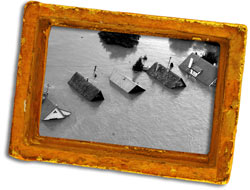
Filmmakers JUDITH HELFAND and SARITA SIEGEL inhabit these three worlds. Their works expose us to the intimate, often unseen relationships that shape the lives of humans and animals across the globe. And their impassioned, sometimes comic, often tragic, sense of storytelling inspires a call to environmental action.
The most powerful art moves us intellectually, emotionally, or spiritually. It asks us to ‘look again’ and consider new perspectives. How might the power and testimony of film challenge us to see the environment around us in novel ways? Judith Helfand and Sarita Siegel disrupt conventions at the roots of science, cinema, and the modern environmental movement. From the jungles of Borneo to the toxic corridor of Louisiana’s cancer alley, the reach of their films forces us to confront the divides across nature and culture, science and politics, private and public, wilderness protection and environmental justice.
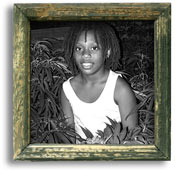
Film and environmentalism share a common history. Since the early days of cinema, when Cherry Kearton accompanied former president Theodore Roosevelt on safari in 1909 to capture African game on film, motion pictures have been instrumental to the study of wildlife and worldwide conservation efforts.
But is not the built environment—the landscapes where people live, work, and play—also a place where relationships to the natural world are made? The aesthetics and politics that infuse the fight for environmental justice are quite different than those that have shaped the protection of wildlife and wilderness. Its cinematic origins can be traced to the rise of social documentary in the 1930s and to filmmakers such as John Grierson and Pare Lorentz. When Lorentz exposed the conditions of poverty and despair wrought by the Dust Bowl, one of the greatest environmental tragedies in the history of the United States, the medium of film joined still photography as a moving force in social change.
Judith Helfand and Sarita Siegel straddle these aesthetic and political divides at the center of the modern environmental movement.
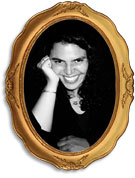
JUDITH HELFAND traces her own initial inspiration as a filmmaker to watching the documentary The Weavers: Wasn’t That a Time on television in the 1980s. Folk singer Pete Seeger was talking about art in the service of activism. Captivated, both by his message and the power of non-fiction film, she went to New York University to study documentary making with George Stoney, who serendipitously had produced The Weavers. Years later, Helfand collaborated with Stoney on the Uprising of ’34—a penetrating look at race, class, and power in Southern mill towns affected by the General Strike of 1934, one of the largest labor protests in American history. Producing and launching that film set Helfand on a path dedicated to linking her passion for storytelling to a vision of equity and justice.
“Every film’s core must contain palpable stakes — an authentic relationship worth fighting for and a heart at risk of being broken. That relationship changes with every film I make, as do the stakes, but it is always there.”
When she was diagnosed at twenty-five with cancer, caused by in utero exposure to the synthetic estrogen, DES, the anti-miscarriage drug given to millions of women including her mom, Helfand’s commitment to “social-change” documentary making got personal—as did her focus on the “environment.”
In A Healthy Baby Girl, winner of a 1997 Peabody Award, Helfand invites the audience into her childhood home to bear witness to the impact of hormone-mimicking chemicals from “one generation to the next.” In the process of revealing how the cancer-causing chemical, DES, “got inside her once sacred relationship with her mother” and deprived her of her own ability to have children, she found her voice, learned how to juxtapose the horror with the humor, and turned her parents into activists “just by being themselves.”
It didn’t end there. When her father decided to cover the family’s suburban tract house in Long Island with vinyl siding, Helfand found the subject of her next film. Wondering about the life cycle of vinyl chloride and its tragic impact on the lives of workers and “fence-line” communities in Louisiana, Helfand joined forces with Co-director/Director of Photography Daniel Gold to produce their 2002 Sundance award-winning and twice Emmy-nominated “toxic comedy,” Blue Vinyl. She tackles what seem like intractable subjects with compassion, humor, and, most importantly, hope.
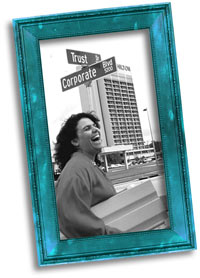
One question endures throughout Helfand’s work: “How do you collapse the toxic future into the present, making the message urgent and entertaining enough for people to take action before it’s too late—before they get hurt, before they lose pieces of their body or their future?”
To sustain that question, Helfand notes, “collaboration is key.” In 1999, she and Robert West co-founded Working Films, a national organization dedicated to supporting social, economic, and environmental justice by leveraging and linking the power and reach of great non-fiction documentaries to grass-roots organizing and activism. Helfand also helped co-incubate, hatch, and launch Chicken & Egg Pictures in 2005, a fund that provides creative and financial support to emerging and veteran women filmmakers at strategic points in the development of their films.
Spurred on by the response to Blue Vinyl, she and filmmaking partner Daniel Gold co-founded Toxic Comedy Pictures, a production company with a social conscience and a sense of humor. Their latest film, Everything’s Cool, takes on global warming and is about to be launched via a nation-wide grass-roots release.
At New York University’s Undergraduate School of Film and Television, Helfand continues to train the next generation of radical social-change filmmakers and toxic comedians.
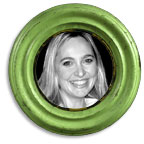
SARITA SIEGEL entered the world of documentary filmmaking through a fascination with anthropology and culture. A graduate in Physical Anthropology and Religious Studies from Auckland University, New Zealand, Siegel followed her archaeological interests to South America and then Asia, where she lived for a time in a Kurdish community in Turkey. The excitement for visual storytelling she shared with her then husband, Taggart Siegel, led to the creation of Alchemy Films in 1994. It was a partnership that produced The Real Dirt on Farmer John, which won the Audience Award and Jury Award at the 2005 Wisconsin Film Festival, The Disenchanted Forest, winner of the 2004 Cinematography Award at the Festival du Cinéma de Bruxelles, and the 2001 PBS special, The Split Horn.
“Film holds unlimited power to touch our lives and change the way we think and act in the world.”
Whether following the journey of a Hmong shaman from the mountains of Laos to the heartland of America or the travels of orphaned orangutans from human pets to inhabitants acculturated to their kind in the Indonesian rainforest, Siegel’s films are infused with an empathy that reveals the challenges when disparate cultures collide and bring into focus characters that might be overlooked in an otherwise fast-moving world. Siegel has also written, directed, and produced two dramatic shorts, Destroying Angel (1995) and The Beloved (1997), which won the JVC Award for Best Screenplay at the 2002 Portobello Film Festival.
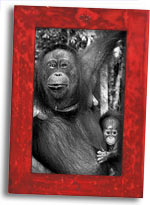
Siegel brings to her work a passion and belief that environmental film can be used to effect change through outreach and involvement. To that end, she serves as Vice President of Media Development for the Balikpapan Orangutan Society. Siegel strongly believes that “film holds unlimited power to touch our lives and change the way we think and act in the world.” “In a contemporary climate where media, science and conservation are increasingly interconnected,” she writes, “I am excited to be making films that educate and protect our ecosystems as well as provide audiences with engaging and entertaining documentaries.”